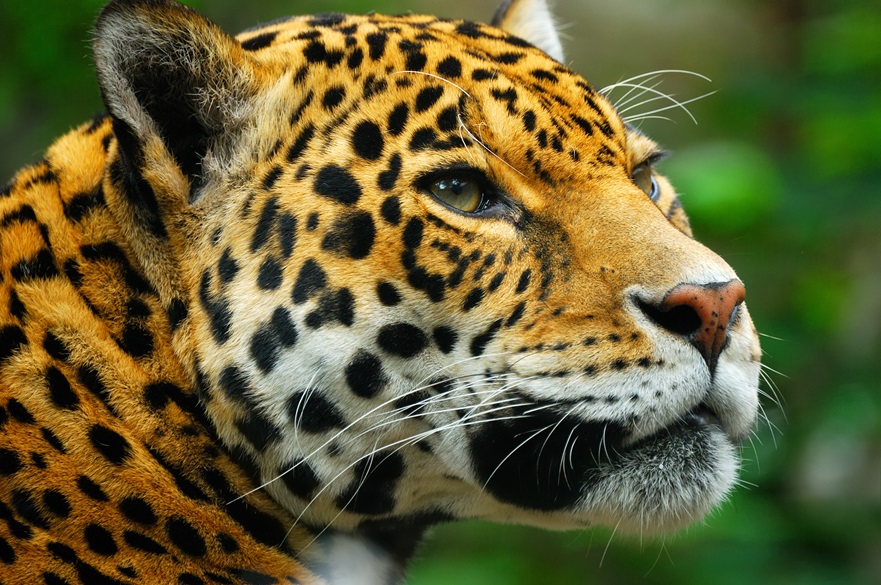Zoo-housed carnivores react positively to novel improvements to their enclosures, study suggests
The welfare of carnivores in zoos is enhanced when improvements are made to their enclosures, a study suggests.

Nottingham Trent University research revealed how carnivores became significantly more active and engaged more with their enclosures when given additional enrichment such as different types of feeding, new structures, the introduction of manipulable objects and techniques to trigger their smell senses.
Carnivores are often seen as challenging to maintain with good welfare in zoos; they sometimes appear susceptible to behaviours indicative of poor welfare such as pacing and some species show poor reproduction in captivity.
The team is the first to look at positive behaviours across multiple species of zoo-housed carnivores when they receive enrichment which is not part of their routine management and care.
They analysed data from previous studies, looking at the behaviour across dozens of species of carnivore and more than 200 individual animals.
The researchers found that when animals were given additional enrichment, their time spent being active increased significantly, from a quarter more to as much as four times their baseline level.
Brown fur seals, Australian sealions and jaguar were among the most active when provided with additional enrichment, the study showed.
Similarly, engagement with enclosures, such as foraging, scratching and climbing, increased with the provision of additional enrichment – most significantly for sealions, spectacled bears and fishing cats.
With the right enrichment, polar bears and Eurasian lynx became more playful as they got older, the researchers found, while red foxes and brown bears became more active with age.
Activity, play and interaction with the environment are all considered to be measures of positive welfare in zoo-housed species.
The researchers suggest that based on this research, there is no reason why any species of carnivore should not experience positive welfare in zoos.
Previously much of the focus has been on the potential negative behaviours of zoo-housed animals and the team suggests that for a holistic view it’s crucial that future research encompasses positive and negative states which may be linked to zoo animal welfare.
“Zoos have shown significant advancements in welfare provisioning in recent years and recognise the need for monitoring and improving welfare” said lead researcher Dr Samantha Ward, a scientist in Nottingham Trent University’s School of Animal, Rural and Environmental Sciences.
“This is the first study to quantify positive behaviours in zoo-housed carnivores and shows that positive welfare can be achieved if the appropriate husbandry is provided.”
“It provides a strong message about the importance and effectiveness of environmental enrichment not only in reducing negative or unwanted behaviours in zoo-housed carnivores, but also in promoting positive behaviours and optimising animal welfare.
“It is important to assess animal behaviour using positive and negative indicators for a more informed view of the viability of zoos in optimising the welfare of carnivores. This will help us to more reliably track progress in welfare.”
The study, which also involved Harper Adams University, the University of Bolton and the University of Łódź in Poland, is published in the journal Applied Animal Behaviour Science.
-
Notes for editors
Press enquiries please contact Dave Rogers, Public Relations Manager, on telephone +44 (0)115 848 8782, or via email.
Nottingham Trent University (NTU) received the Queen’s Anniversary Prize for Higher and Further Education in 2021 for cultural heritage science research. It is the second time that NTU has been bestowed the honour of receiving a Queen’s Anniversary Prize for its research, the first being in 2015 for leading-edge research on the safety and security of global citizens.
The Research Excellence Framework (2021) classed 83% of NTU’s research activity as either world-leading or internationally excellent. 86% of NTU’s research impact was assessed to be either world-leading or internationally excellent.
NTU was awarded The Times and The Sunday Times Modern University of the Year 2023 and ranked University of the Year in the Whatuni Student Choice Awards 2023. It was awarded Outstanding Support for Students 2020 (Times Higher Education Awards), University of the Year 2019 (Guardian University Awards, UK Social Mobility Awards), Modern University of the Year 2018 (Times and Sunday Times Good University Guide) and University of the Year 2017 (Times Higher Education Awards).
NTU is the 5th largest UK institution by student numbers, with approximately 40,000 students and more than 4,400 staff located across five campuses. It has an international student population of 7,000 and an NTU community representing over 160 countries.
Since 2000, NTU has invested £570 million in tools, technology, buildings and facilities.
NTU is in the UK’s top 10 for number of applications and ranked first for accepted offers (2021 UCAS UG acceptance data). It is also among the UK’s top five recruiters of students from disadvantaged backgrounds and was the first UK university to sign the Social Mobility Pledge.
NTU is ranked the second most sustainable university in the world in the 2022 UI Green Metric University World Rankings (out of more than 900 participating universities).
- Subject area: Animal, equine and wildlife
- Category: Press office; Research; School of Animal, Rural and Environmental Sciences


